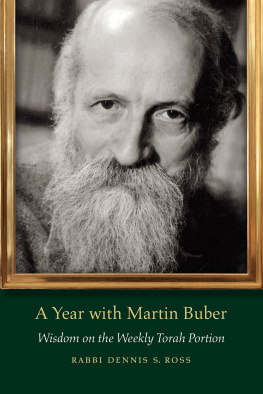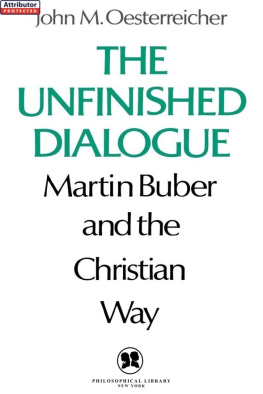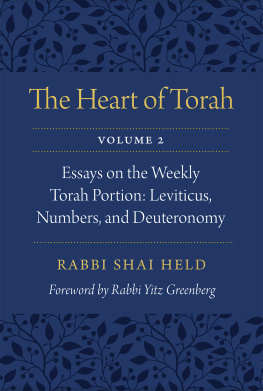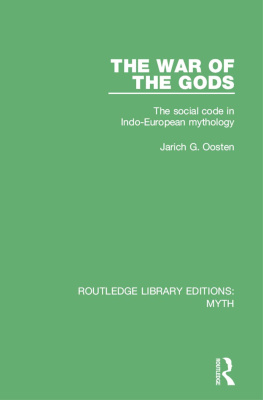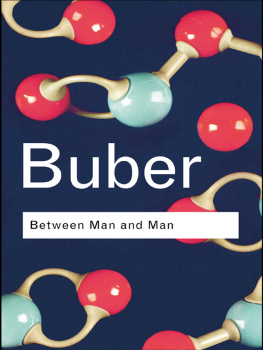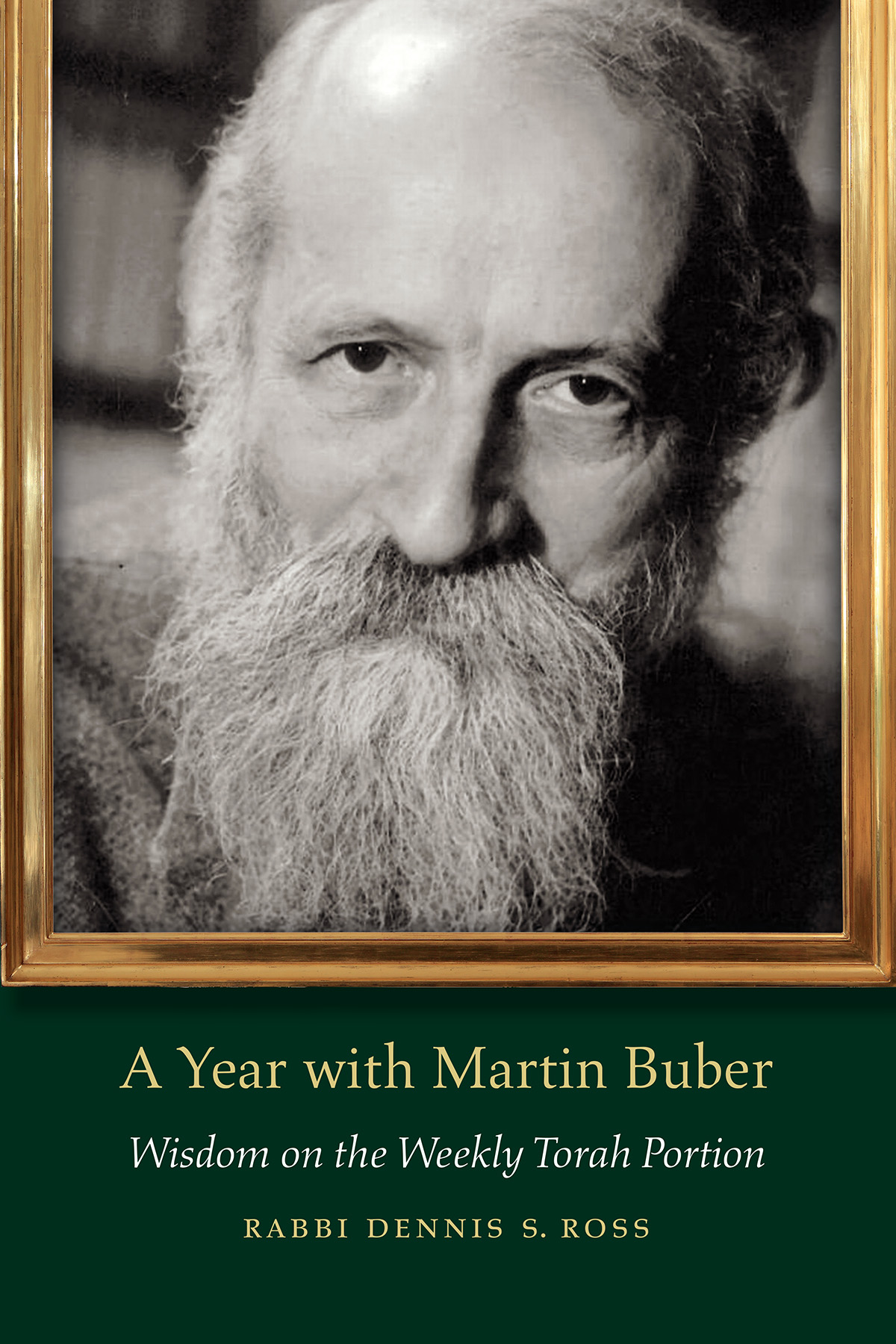
Ross makes Bubers writings eminently readable even as he treats them with full scholarly integrity. And by bringing himself into the story, Ross allows us to go from pure text study to an individual life, as Buber himself would have wanted.
Rabbi Thomas M. Alpert, Temple Etz Chaim in Franklin, Massachusetts
What a pleasure A Year with Martin Buber is! People of all faiths with an interest in the Bible and bringing divine wonder to the routine of daily life will delight in having this inspirational book as a companion.
Rev. Debra W. Haffner, Unitarian Universalist Church in Reston, Virginia
This richly textured book will send the reader back, time and again, to revisit its teachings and insights.
Rabbi Bernard Mehlman, senior scholar, Temple Israel in Boston, Massachusetts
JPS Daily Inspiration Series
A Year with Martin Buber
Wisdom on the Weekly Torah Portion
Rabbi Dennis S. Ross

The Jewish Publication Society | Philadelphia
University of Nebraska Press | Lincoln
2021 by Rabbi Dennis S. Ross
Cover designed by University of Nebraska Press; cover image is in the public domain. Frame: iStock.com/ClausAlwinVogel.
Author photo J.T. Sander.
Passages and reflections by Rabbi Chaim Stern used with permission from Lea Lane.
Acknowledgments for the use of copyrighted material appear in , which constitutes an extension of the copyright page.
All rights reserved. Published by the University of Nebraska Press as a Jewish Publication Society book.
Library of Congress Cataloging-in-Publication Data
Names: Ross, Dennis S. (Dennis Sidney), 1953 author.
Title: A year with Martin Buber: wisdom on the weekly Torah portion / Rabbi Dennis S. Ross.
Description: Lincoln: University of Nebraska Press, 2021. | Series: JPS Daily Inspiration | Includes bibliographical references.
Identifiers: LCCN 2021007572
ISBN 9780827614659 (paperback)
ISBN 9780827618848 (epub)
ISBN 9780827618855 (pdf)
Subjects: LCSH : Bible. PentateuchCommentaries. | Buber, Martin, 18781965Teachings. | Buber, Martin, 18781965.
Classification: LCC BS 1225.53 . R 6767 2021 | DDC 222/.107dc23
LC record available at https://lccn.loc.gov/2021007572
The publisher does not have any control over and does not assume any responsibility for author or third-party websites or their content.
To Debbie and our loving family, Joshua and Sam, Adam, Eliya and Libi, and Miriam, and my mother, Sara, and Debbies mother, Rita.
Contents
I thank my colleagues Rabbi Tom Alpert, Rabbi Stuart Geller, Rabbi Earl Grollman, and Rabbi Dan Ornstein for their continuing and caring involvement as well as my teachers of blessed memory: Rabbi Eugene Borowitz, Rabbi A. Stanley Dreyfus, and Rabbi Chaim Stern, whose wisdom continues to enrich my life and work. I also acknowledge the members of my interim congregations, Temple Emanuel Sinai, Worcester, Massachusetts; Congregation Beth Emeth, Albany, New York; East End Temple, Manhattan; Monroe Temple, Monroe, New York; Temple Sinai, Summit, New Jersey; West End Temple, Neponsit, New York; and Temple Am Echad, Lynbrook, New York, for our studying together and learning from one another. I thank my colleagues at Planned Parenthood Empire State Acts: Robin Chappelle Golston, Georgana Hanson, M. Tracey Brooks, JoAnn M. Smith, Carol Blowers, and Rev. Tom Davis, for leadership toward social justice by values and integrity. At The Jewish Publication Society, I thank director Rabbi Barry Schwartz for the concept and support that sparked and sustained this work, and managing editor Joy Weinberg, whose careful attention and patient direction opened depth and insight. I thank the University of Nebraska Press staff, for co-publishing this book. And most of all I thank my family, whose loving support makes it all possible.
Years before anyone ever imagined walking into a Starbucks, a coffee shop with the clever name I and Thou opened in the trendy Haight-Ashbury neighborhood of San Francisco. I suspect the owners of I and Thou chose that name to say that theirs was a destination for great coffee and great conversation.
So, lets you and I imagine getting a cup at I and Thou. We meet at the door, order, grab a table, and are so excited to see each other that the talking starts before the coats come off. We speak honestly, listen carefully, and respond fully, agreeing on some things, disagreeing on others, paying no attention to the coming and going around us. A lull in the conversation brings a glance at a watch and a Hey! I didnt realize we were carrying on that long! We continue talking until our time together endsas it eventually must. And, if Martin Buber were watching us from the next table, hed likely say that wealong with the owners of this caftook a page from his best-known book, I and Thou (1923).
This classic work explains Jewish spirituality by examining two kinds of relationships, I-Thou and I-It. I-Thou, illustrated above, doesnt have to go on for two hours like we do at the caf. For example, see yourself there, returning to the counter for a refill, and you notice something reassuring in the baristas smile, an unspoken promise to care for youif only for as long as it takes to top off your cup. Rising above the low behavioral expectations for customer and server, the two of you make a human connection. The exchange contributes a little extra lift to your Thank you! and you add a decent tip. This brief interaction is I-Thou, too.
The second relationship is I-It. Take as an example an imagined caf across town named I and It. Their coffee is fine; maybe its even better. The problem is the serviceso indifferent and impersonal that a customer wonders whether anyone cares you are there. Even so, I-It isnt necessarily bad; sometimes I-It is all a person needs. I-It can be businesslike and brusque, superficial and impersonal, perfect when youre in a hurry and just want a quick cupNo sugar, a little milk and done. I-It gets you through the morning drill en route to workpicking up coffee, paying for the paper at the newsstandeyes on the headlines, neither glancing at the cashier as you put down the bills nor looking up at the commuter train conductor who checks your ticket while talking to another rider.
While I-It can be necessary and constructive, it can also be one-sided, commercial, detached, even manipulative or dominating. I-It becomes harmful, for instance, when someone disparages or degrades another human being as an It: when theres excessive overgeneralization, inflexible pre-judgment or discrimination over race, religion, age, gender, sexual orientation, and so onbut I-It comes in degrees, so lets not be entirely dismissive. After all, most of us need the I-It that surrounds our getting food, shelter, clothing, and more. I want the I-It of a reliable auto mechanic and a good dry cleaner, the sanitation worker who picks up my trash and the letter carrier who comes to my front door six days a week, because these things help me live my life. Yet, where I need I-It to survive, I must have I-Thou to thrive, to be made whole and fulfilled. Only I-Thou does that.
Another thing. Buber teaches that theres more to I-Thou than just the two of us off in a corner talking over coffee: I-Thou is the foundation of Bubers vision of an ideal community.
I-Thou is both building block and mortar of Bubers vision for the ideal social order. Imagine a world where everyone acts the way we do at that caf, where community after community fills with people who treat each other as Thou. Thats what Buber sometimes speaks of as Hebrew Humanism: a utopian dream of a collaborative and fully inclusive society built one I-Thou at a time. And Buber gives us even more: an overarching spiritual dimension he calls Eternal Thou. Each I-Thou meets God in Eternal Thou, where every single I-Thou abides with God, forever. We cant see Eternal Thou, nor can we prove God exists, but as a matter of faith, when you and I speak as I-Thou, each of us fulfills our individual destinies on earth by bringing God into our relationship through the Eternal Thou. In I-Thou, earth meets heaven.
Next page
